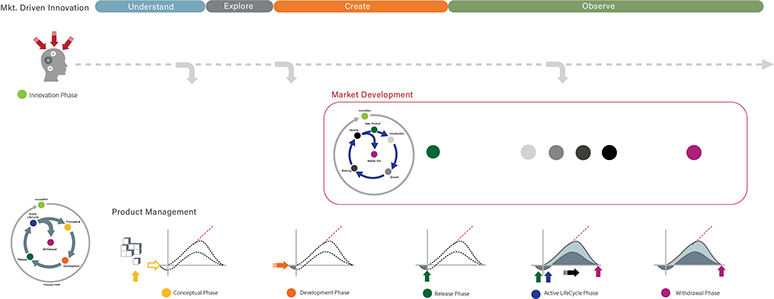Glossary
Logout
©Copyright Arcturus 2022, All Rights Reserved.
7
Terms & Conditions
|
|
|
|
Security & Privacy
Contact
MARKET DEV. MANAGER
|The Product Management Framework and the Market Dev. Manager in Context
Product Management is a key business discipline, the purpose of which is to deliver 'Strategic Intent' (the Company objectives) efficiently, effectively, consistently and in a timely manner achieved by managing / aligning the Company abilities to deliver customer delight profitably.
The Product Management discipline is itself made up of three 'sub-disciplines' (activities), entitled 'Programme Management', 'Market Development' and 'Strategic Portfolio Management'. By definition, this is 'true' Product Management, as the framework pragmatically covers every aspect of the management activity across defined markets / segments thereof. The framework is eminently flexible so it can be expanded and adapted to meet the needs of any business application.
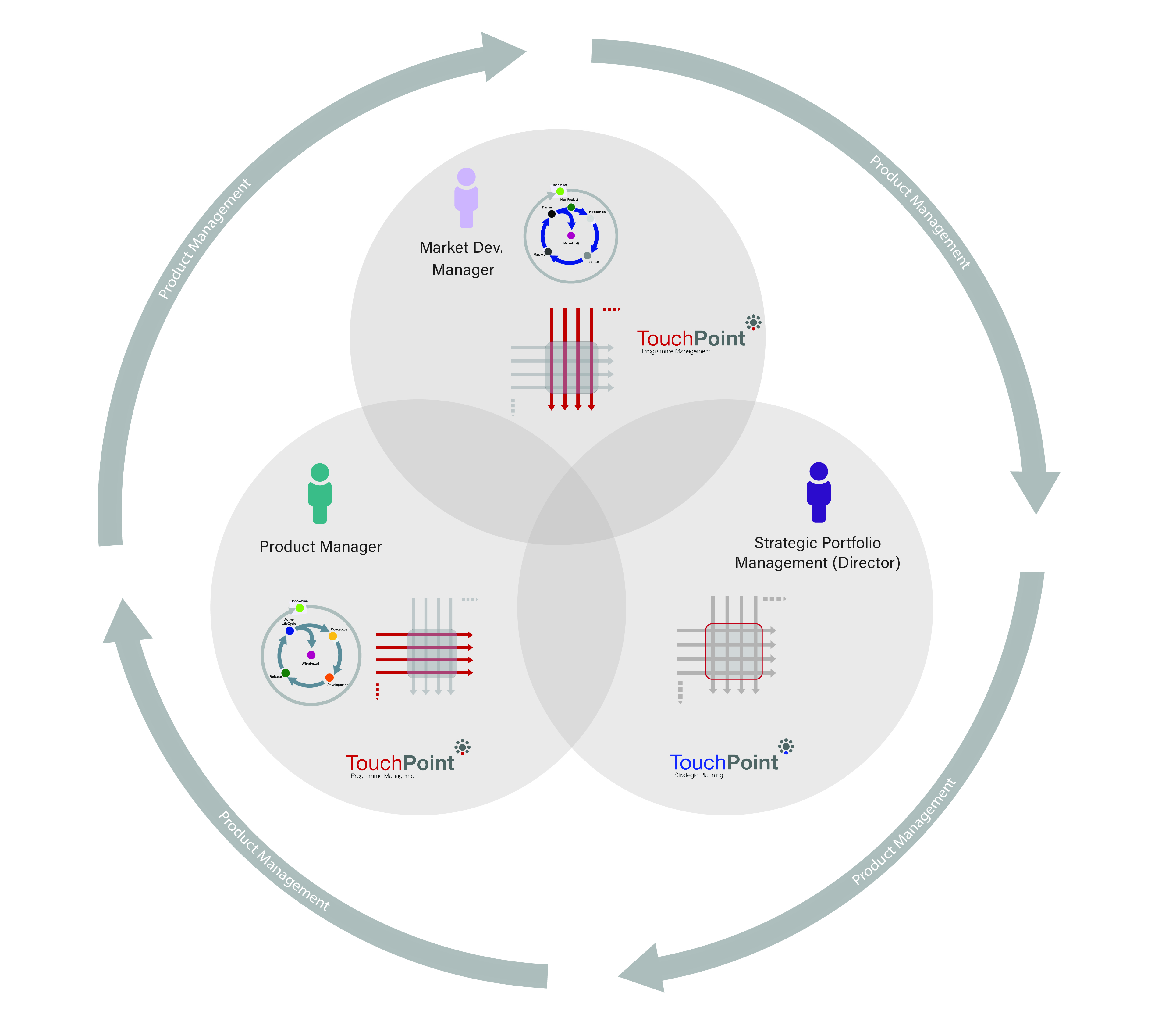
Product Management Framework

Multi-disciplinary Team Management
Product Management - Defined
It is vitally important that all three activities (Programme Management, Market Development and Strategic Portfolio Management) work in complete harmony with one another and with one purpose, to deliver 'Strategic Intent' efficiently and effectively - in other words it must be right for your business - and as with other processes and activities, it must deliver measurable value.
In common with other 'disciplines', which are not a 'direct' or 'functional' activity within the business unit, if a specific product management activity is deficient in some way or another, functional areas of the business unit will automatically step up to the plate and make this activity happen based upon their own level of understanding of what is required (which may, or may not be in alignment with Strategic Intent) - so it's rather like the orchestra playing without a conductor at this point, they can, because in this example, every member of the orchestra is a qualified musician, but the end result has many disadvantages, least of all is that it doesn’t sound quite right! - ...and yes this example has been proven.
So in essence the functional areas of the business unit, will inevitably deliver Products and Services regardless of whether there is a Product Manager or not, but this ad-hoc process will certainly not be as robust or as efficient as a PM driven activity . Please note that this observation should not be practiced as a position of choice and should not be encouraged.
The diagram below (1 -4) detail the primary alignments associated with Product Management - fundamentally the framework remains (...this is always fixed and does not change) but the core responsibilities change according to business needs and those responsible for the Product Management activity. As such the Product Manager (in title) does not necessarily own or is responsible for the entire Product Management activity. There are a number of reasons for this, not least is, by the time the portfolio Vs the target market reaches a certain size, logistically it becomes to much work and just too complex for one person to handle. The 'Product Manager' is however, as a minimum, responsible for the 'Programme Management' activity - in other words delivering required Products to the matrix but of course there can be more than one Product Manager (in-fact this can be as many as is required).
The following defined variations are 'primary' variants of Product Management activities (alignments) :
1. Product Manager (Programme Management) + Market Development Alignment
2. Market Development Alignment
3. Product Manager Alignment
4. Entrepreneurial (Start-up) Alignment

1
2
3
4

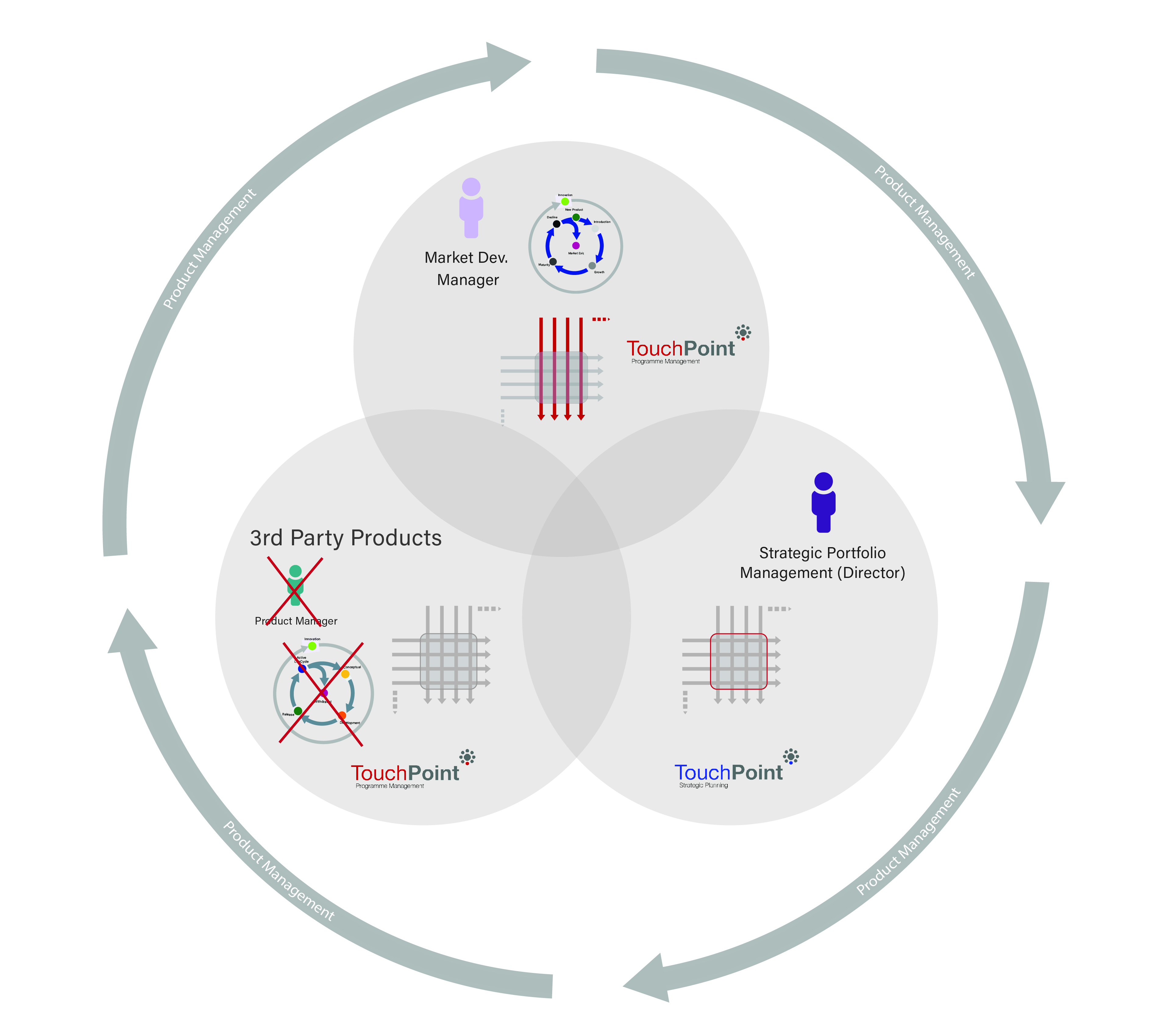
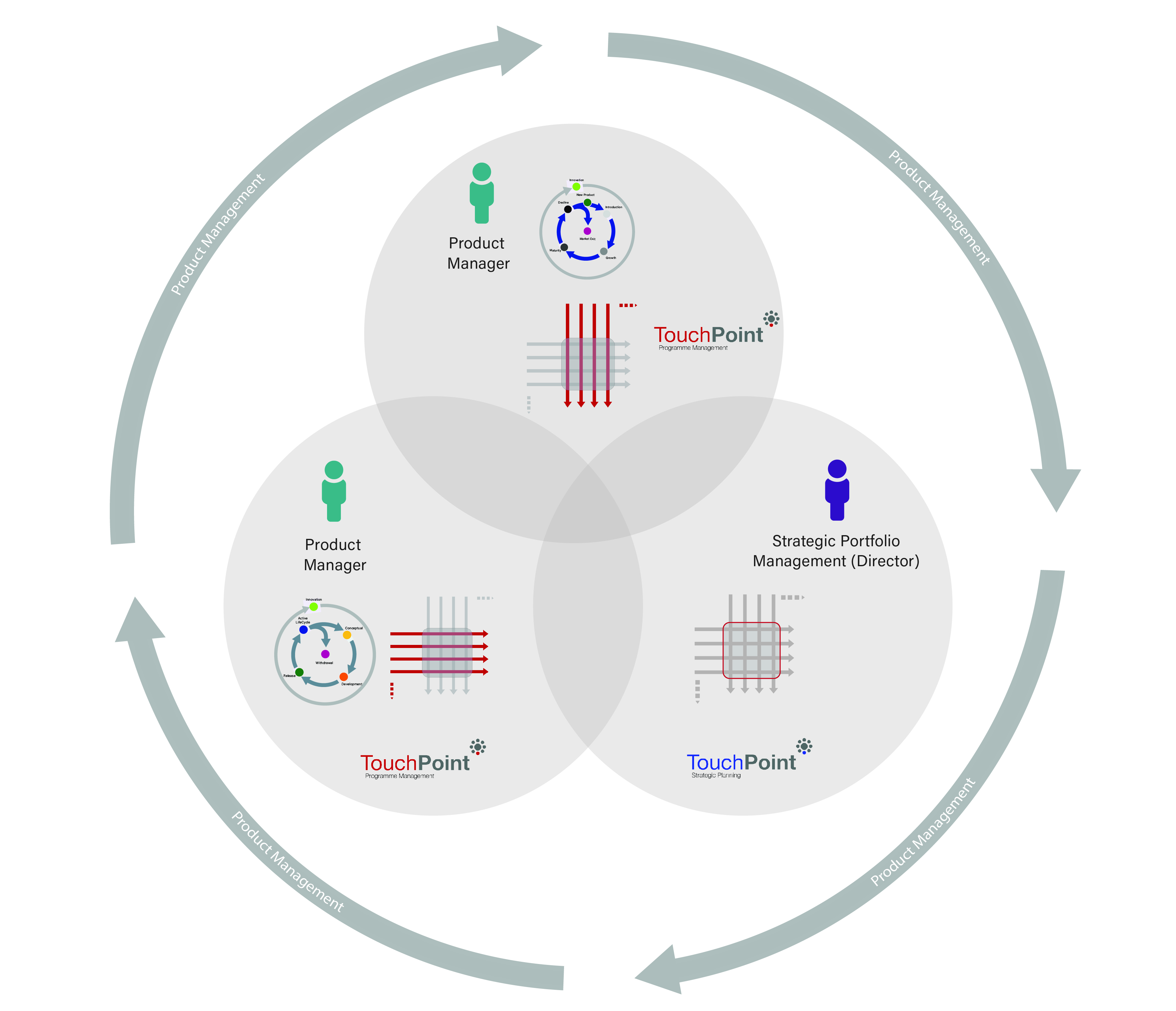
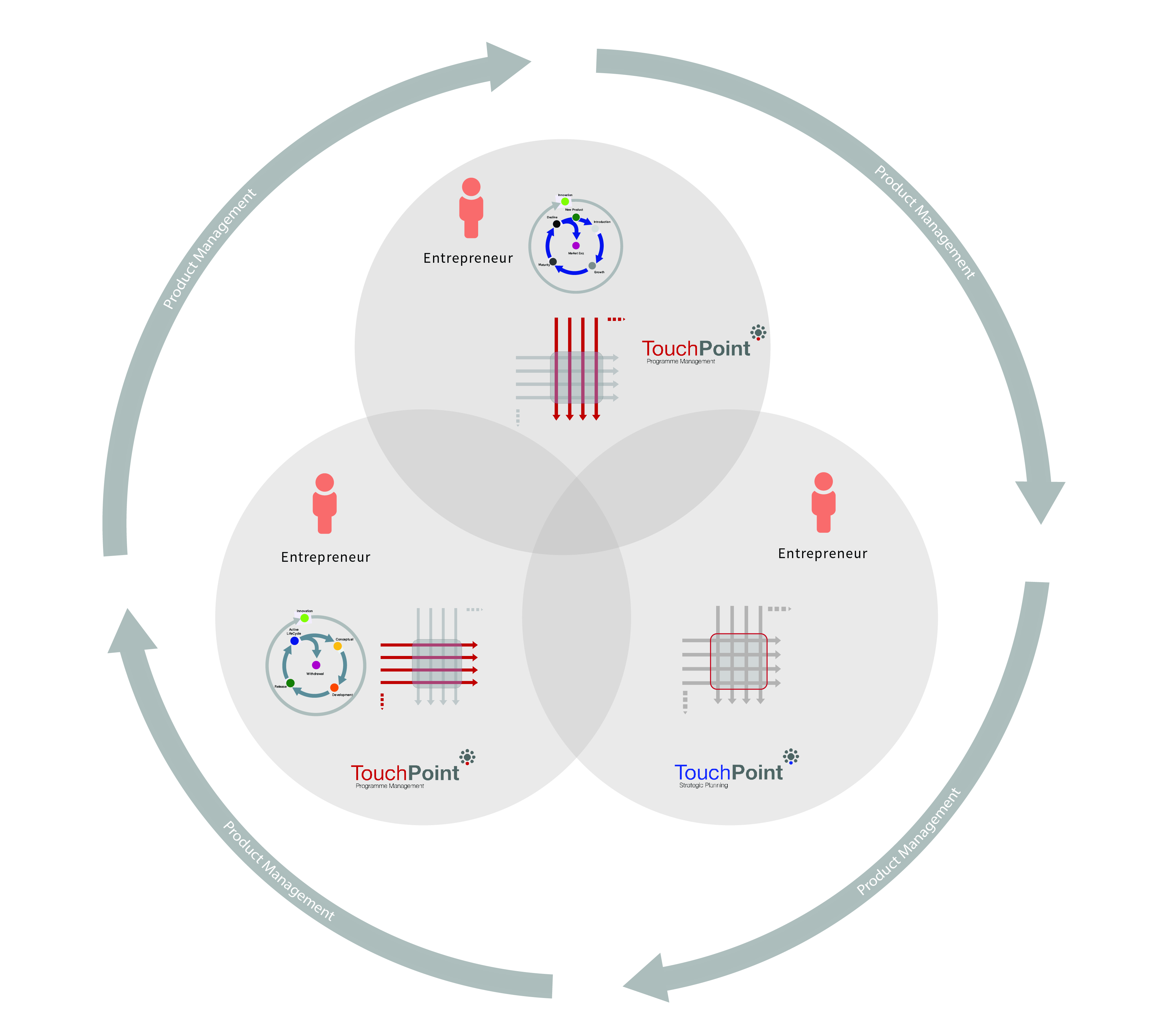
‘Market Development’ is a (prerequisite) complementary management discipline to that of ‘Product Management’ (appearing adjacent to Product Management on the Matrix). The primary role of ‘Market Development’ is to focus on ‘market solutions’ and manage resultant offerings in alignment with business objectives and market deviations. Idiosyncrasies of the target market are typically defined and understood within the ‘Market Development’ activity and potentially could lead to further primary and secondary Market Segmentation.
There are many similarities in the way that customer / user ‘Solutions’ (a collective of Products) are managed and to a certain extent, can actually be considered a Product within their own right. The way the solution in question is marketed, is therefore specific to that particular target market. The benefits from a management point of view are many but include the ability to correctly position the solution within the market together with the alignment of a market price from a value proposition point of view.
The PMM fully embraces the concept of the Market Development Manager and as such the PM process and the collective of Tools and Processes contained within are immediately aligned and applicable.










